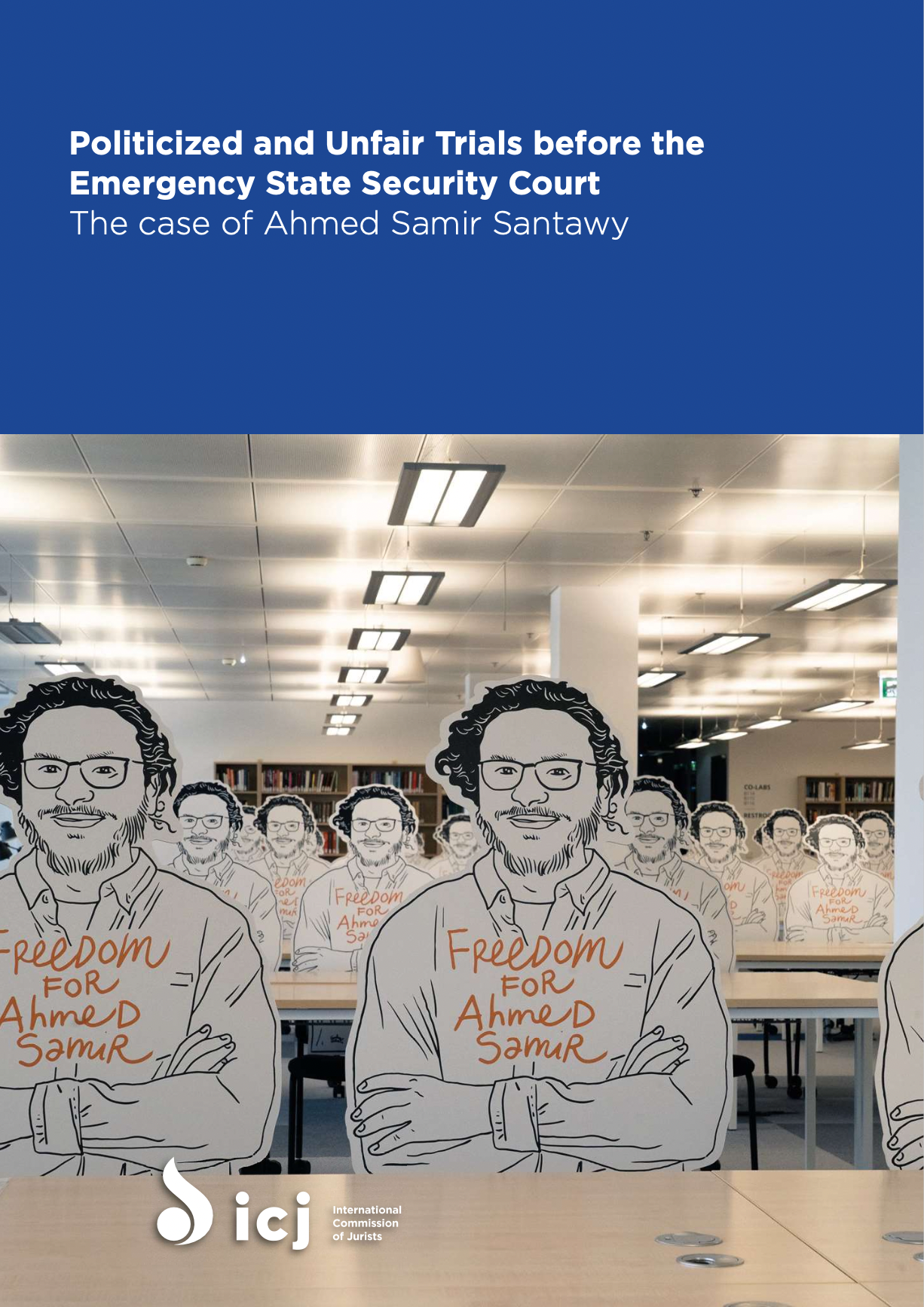The International Commission of Jurists (ICJ) has summarized the conclusions of a new report about the case of Ahmed Samir Santawy issued by the Egyptian Commission on Rights and Freedoms (ECRF) in a briefing paper released today.
On the 23 June 2021, the Emergency State Security Court found Mr Santawy guilty of ‘spreading fake news’. His conviction was solely based on Facebook posts about the COVID-19 pandemic in Egypt which the Prosecution attributed to him and whose authorship Mr Santawy strenuously denied. The ESSC sentenced Mr Santawy to a prison term of four years.
The ECRF report documents how his conviction and sentence resulted from criminal proceedings marred by gross human rights violations, including enforced disappearance, torture or other cruel, inhuman or degrading treatment or punishment, arbitrary deprivation of liberty and other violations of fair trial rights, such as the right to a defence, the right to be presumed innocent, the right to be tried by an independent and impartial tribunal and the right not to be charged twice with the same crime.
“Mr Santawy’s trial was so blatantly unfair that the only appropriate course of action for the Egyptian authorities is to immediately quash his conviction and sentence,” said the Director of the ICJ MENA Programme, Said Bernarbia.
“He must be immediately released, all other criminal cases pending against him should be dropped, and an investigation should be launched into the allegations of enforced disappearance and torture and other ill-treatment in his case.”
The ICJ and ECRF are concerned that the trial of Mr Santawy before the ESSC reflects a pattern of human rights violations to which individuals prosecuted by the Supreme State Security Prosecution and tried by ESSC are subjected.
This pattern continues to prevail in Egypt: it involves a criminal process that begins with an arbitrary arrest, enforced disappearance, torture or other ill-treatment, continues with arbitrary and unlawful prolonged pre-trial detention, and ends with grossly unfair trials.
On 17 November 2021, the ESSC convicted former Member of Parliament and human rights lawyer, Zyad el-Elaimy, as well as journalists and politicians, Hossam Moanis and Hisham Fouad, of ‘spreading fake news’ and sentenced them to terms of five and four years in prison, respectively.
On 20 December 2021, the ESSC is set to hand down its verdict in the case of blogger Alaa Abd El Fattah, human rights lawyer Mohammed al-Baqer and journalist Mohammed Ibrahim “Oxygen”; all of whom were charged with the same offence of ‘spreading fake news’.
Despite the formal lifting of the “state of emergency” on 25 October 2021, the ESSC retains jurisdiction to hear cases already under consideration, under article 19 of the 1958 Emergency Law,
“The Egyptian authorities are weaponizing the Emergency State Security system to crush free expression and dissent even outside the “state of emergency,” Said Benarbia added.
“Their message is clear and unmistakable: with or without the “state of emergency”, the crackdown on the rule of law and human rights can continue unabated.”
The ICJ and ECRF call on Egypt to repeal those provisions of the Emergency Law that are inconsistent with the country’s international human rights law obligations, and to drop any existing cases or otherwise transfer them to the ordinary courts. Further recommendations to Egypt are set out at the end of the ICJ briefing paper.
You can download the briefing paper here.
Contact:
Said Benarbia, director of the ICJ’s Middle East and North Africa Programme, said.benarbia(at)icj(dot)org
Asser Khattab, Research and Communications Officer, the ICJ’s Middle East and North Africa Programme, asser.khattab(at)icj(dot)org




